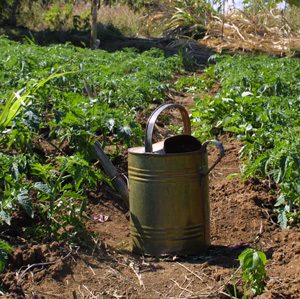Hundreds of thousands of children in Zambia will have access to better quality school meals as a result of a recently launched project in central Zambia.
The wide-ranging scheme will promote vegetable production, link vegetable producers and farmer groups with schools, provide targeted education and nutrition training to catering staff, teachers and parents, and create vegetable demonstration plots at 60 primary schools across the country’s Central, Lusaka and Eastern Provinces.

Farmers across the region will be supported to diversify their food production and sell their produce into schools in their locality, while ‘training of trainer’ workshops will be carried out amongst school and community representatives.
The project will also promote a wide range of other education and training activities in food safety, nutrition and health, will support the formation of school health groups, and will train families in food storage methods.
More than 50 schools in the district have received tools, seeds and equipment, and are currently in the process of clearing land to create demonstration plots where different varieties of vegetable can be planted and grown. These sites will used to promote similar backyard gardening activities at other schools and at family level across the region. Pumpkin leaves, green beans, okra, cabbage, sweet potato and eggplant (aubergine) are amongst the crops that will be grown.
Procurement committees for the purchase of healthy school foods are being appointed across the six districts where the project will operate, while a call has been issued for expressions of interest from farmers and producer groups who might supply their goods into the network of local schools.

